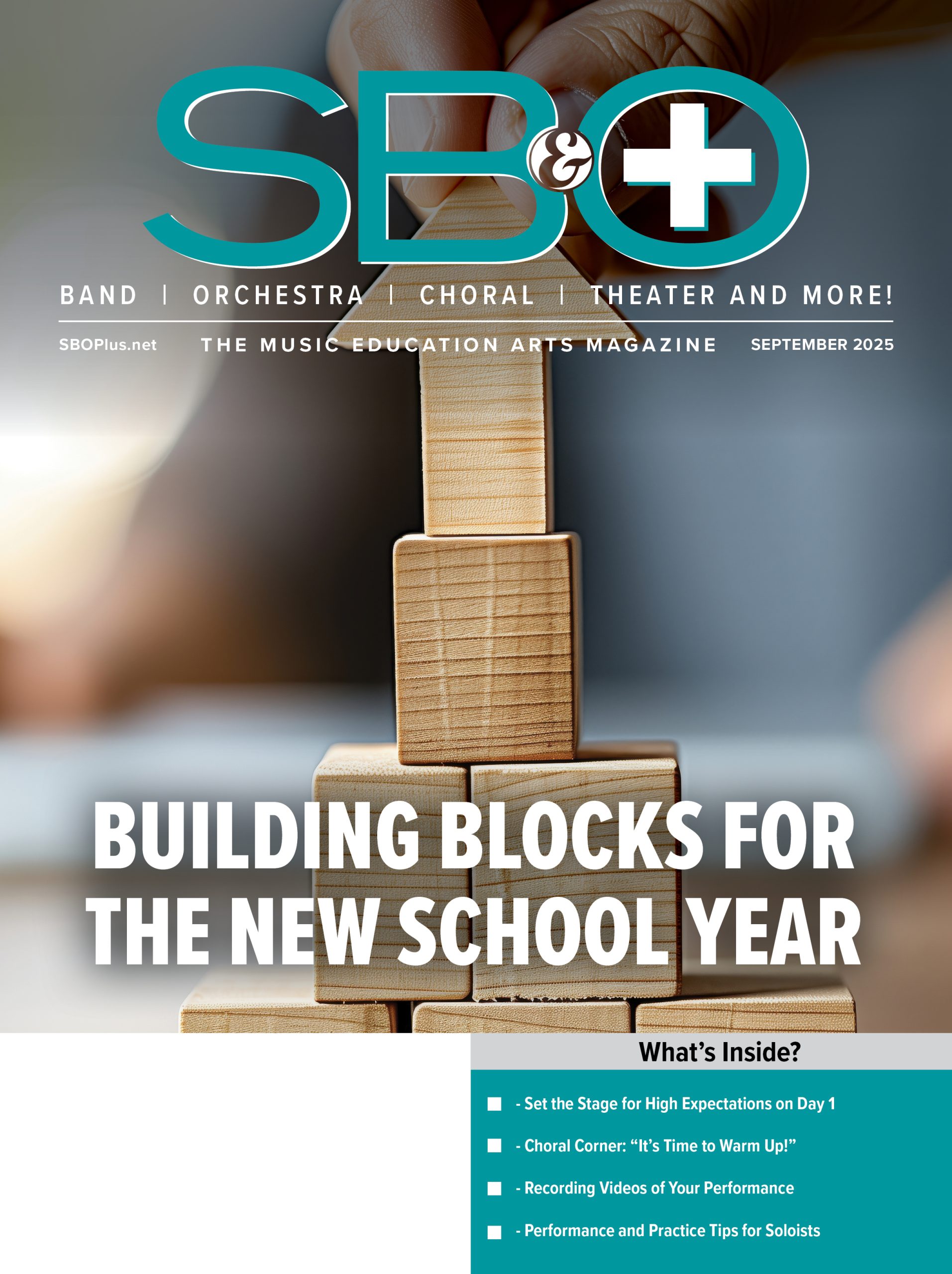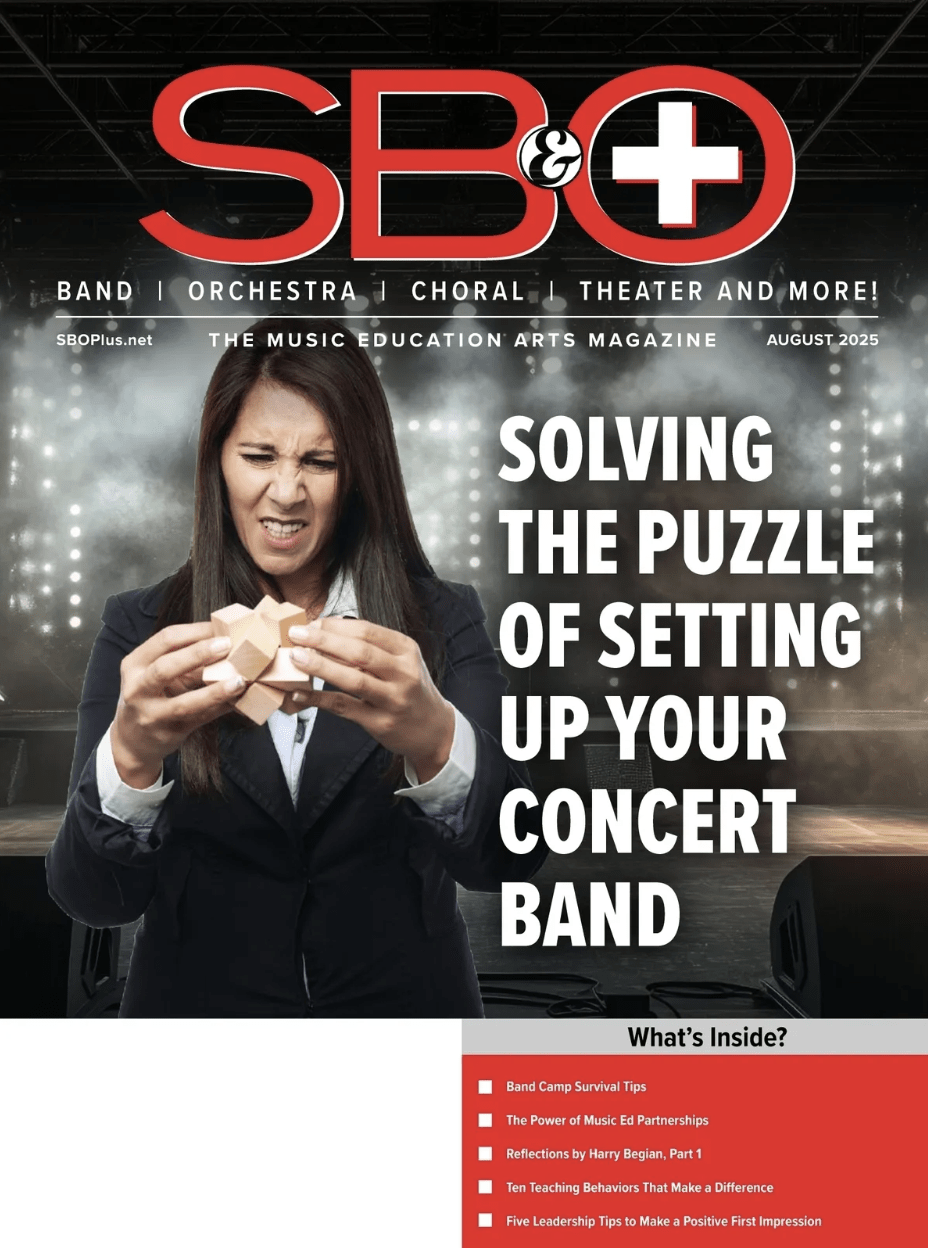Over the years I’ve been asked why I have been such a forceful proponent of mandates. Many individuals, and even organizations, have commented that we should be happy with standards and that we are included in lists of core curriculum. I am not suggesting these have not been important accomplishments in the evolution of music and arts education – they have been. Recent experiences, though, have clearly shown that if we want to be sure that certain music and arts programs are available to every child we have to insist on mandates and an accountability system to ensure that what is mandated is actually being carried out at the school level.
Last month we shared with you some comments from former Arkansas Governor Mike Huckabee’s book, From Hope to Higher Ground, discussing the steps he took to make music and arts instruction mandatory in his state. In a conversation with the Governor, he told me that, “Without the force of law an idea becomes nothing more than a suggestion. People ignore suggestions all the time. If you want something done it should be couched as a ‘must do’ – not a ‘may do’ – through the force of law.”
So, in Arkansas, there is a mandate that every child in grades K-6 must have music and art instruction provided by a certified teacher. Nothing fuzzy about what the requirements of the schools are here!
Troubled Times in the “Renaissance City”
A more recent example comes to us from the city of Providence, Rhode Island. I have been fortunate to work with the fine members of the Rhode Island Music Educators Association and their leaders over the past several years to address the erosion of music education in the Providence School System. It started when Diana Lam was the Superintendent and the problem was accelerated when she left town and Melody Johnson took over as Superintendent. Using a severe budget shortfall as the backdrop, music and arts programs across the city were eliminated, leaving nothing more than a shadow of what was once a vibrant and celebrated citywide program.
As is the trend with superintendents, Ms. Johnson also moved on. Dr. Donnie Evans arrived as the new Superintendent he was stunned by the lack of music and arts instruction. He also had a huge budget hole to fill. Moving the music and arts education troubles to the top of the priority list was going to have to wait. In the meantime, teachers began to complain to the Rhode Island Department of Education. And then…
Last month, the Rhode Island commissioner of Education Peter McWalters, responding to complaints from the teachers in Providence, decided it was time to step in and wrote the following excerpted letter to Dr. Evans:
Dear Superintendent Evans:
As you know this department has received complaints alleging that the Providence Public Schools are failing to fully comply with the requirements of the Basic Education Program (BEP) in the following areas:
- Access to libraries [BEP Section 15: Library Media Curriculum]
- Access to music instruction [BEP Section 17: Music Education Curriculum]
- Access to art instruction [BEP Section 6: Art Education Curriculum]
(Note: We have excerpted the music portion of the letter -Ed.)
II. Access to music instruction [BEP Section 17: Music Education Curriculum]
Status: BEP violation
Discussion: Section 17 of the BEP requires that a music program be provided in all grades, K-12. That program must “offer all students opportunities to perform, create and compose, develop aural and cognitive skills, read music, evaluate and criticize. At the high school level, coursework shall also be offered (in each high school) in at least one vocal and one instrumental activity.” [Section 17 (a)]
Further, “the music education program shall provide coursework in the following: rhythm; melody; harmony; form; timbre; expressive qualities; notational skills; styles (types); history and literature; and performance skills.” [Section 17 (c)]
Section 17 states that “the goals of music education are to help every student develop sensitivity to music, develop abilities to translate traditional and graphic symbols into sound, understand cultural and musical heritage, develop the ability to make informed choices about music, and build a lifelong appreciation of music. To these ends, and to meet the needs of all students, the music program shall have three components. One is the opportunity to study music as a separate subject of study. The second is to encounter music as part of a general basic education. These are both important for all students. The third component recognizes the role that music can play in the education of students with special needs, including those who are handicapped, gifted and talented, bilingual and/or disadvantaged.” [BEP Section 17 – emphasis added]
The regulatory requirement is unequivocal in its emphasis on the necessity that all students at every level K-12 have access to formal music instruction as a separate subject of study. At the high-school level, this must include specific vocal and instrumental instruction. The coursework-content requirements are also clearly delineated.
Based on information received from the district, it is clear that many students in Providence Public Schools have no access to music instruction as a separate subject of study. This is particularly unacceptable given the regulation’s emphasis on access to music instruction for students with disabilities, students who are English language learners, and students who are otherwise disadvantaged. In combination, these three categories account for the overwhelming majority of Providence Public Schools students. The requirement to provide a comprehensive program of music instruction, available to all students in all Providence public schools, is therefore not less urgent than in districts with a smaller proportion of students who are educationally disadvantaged, but rather, according to regulation, more urgent, given the demographic makeup of the Providence Public Schools.
Remedy: The district is instructed to provide a corrective-action plan within 30 days, setting forth how the district will come into compliance by providing access to music instruction as a separate subject of study to all Providence Public Schools students at all levels K-12 in every school, including vocal and instrumental instruction at the high-school level.
Based on our several conversations on these issues during our regularly scheduled intervention meetings, I am aware that the Providence Public Schools administration is committed to providing access to library, arts, and music programming for Providence Public Schools students in every school. I am not unaware of the severe budgetary constraints under which the school district is operating. However, budgetary incapacity is not a defense against the failure to provide the programming required in the BEP.

























